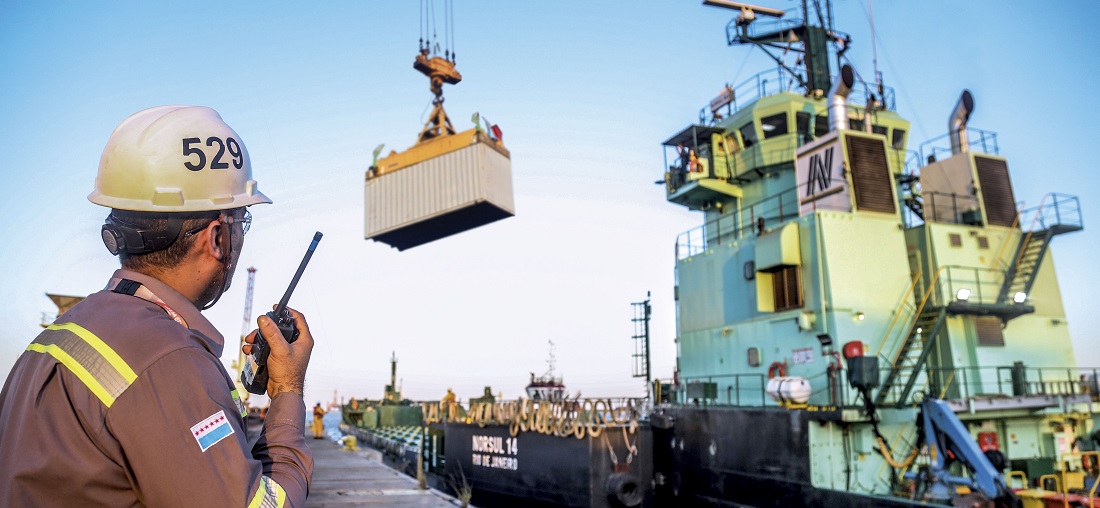
Brazil manufacturing industry loses relevance among exports
Jun, 20, 2022 Posted by Gabriel MalheirosWeek 202225
The manufacturing industry of Brazil has lost considerable space in terms of exports and in the world trade of manufactured goods in recent years. According to a study by the National Confederation of Industry (CNI), the Brazilian industry is below its potential to participate in international trade.
Despite having increased its international presence in recent years using more imported inputs, the manufacturing sector in Brazil has not managed to increase its sales abroad. In the last 15 years, Brazil’s export agenda has focused on primary items, with a loss of participation in manufactured goods, especially the most technology-intensive, the entity emphasizes.
According to the study International Integration: Openness with Competitiveness (free translation), part of a series of 21 documents that CNI prepared to present proposals on the fields of economy, foreign trade, environment, and infrastructure, Brazil’s participation in exports associated with the manufacturing industry worldwide rose from 0.9% in 2005 to 0.6% in 2015 and 0.4% in 2020, according to data from the United Nations Industrial Development Organization (UNIDO) and of the World Trade Organization (WTO), compiled by the CNI.
With regard to added value, a concept that measures the inputs added in the global production process, the Brazilian industry went from 2.3% in 2005 to 1.6% in 2015 and 1.3% in 2020.
The use of inputs, measured by the coefficient of imports of industrial inputs, grew from 16.1% in 2008 to 19.3% in 2021. On the other hand, the importance of exports for industrial production, measured by the coefficient of exports – fell from 15.4% to 14.6% in the same period.
Brazil’s share of exports from the manufacturing industry, around 0.83% in 2019, placed the country in 30th place in the ranking of the largest exporters of industrial goods. The CNI estimates, however, that this percentage has dropped to 0.78%, which took Brazil to 31st place.
Another pattern in the CNI study is the concentration of exports on primary products, which exposes Brazil to international market swings. This represents a decrease in the manufacturing industry’s share of total exports, with the extractive industry and agriculture, which are less technologically demanding, taking their place.
The share of the manufacturing industry in Brazilian exports has been falling for more than two decades. In 2000 it reached a record of 83% and 51.3% in 2021. During that period, the extractive industry increased its presence from 6.7% to 28.5%. Agricultural products, which accounted for 8.1% in 2000, grew to 21.6% in 2020 and 19.6% in 2021.
This scenario reveals even less diversification in the manufacturing industry of Brazil since 2014. These less technology-intensive sectors increased their share of domestic industrial production from 25.56% in the biennium 2007 to 2008 to 35.04% ten years later, adds the CNI.
According to Renato da Fonseca, industrial development superintendent at CNI, the lower share of the manufacturing industry in Brazilian exports is due to the increase in imported inputs, driven by the appreciation of the Brazilian currency, from 2005 onwards.
“The prices of imports became cheaper, thus discouraging exports at the same time,” he says. “Another point is our long-term difficulty in maintaining exports. The so-called ‘Brazil costs’ are added to costs borne by importers. Besides, we have a tax system that generates cumulativeness when exporting. Therefore, reducing the tax throughout the chain is essential to boost exports.”
Fonseca adds that the loss of protagonism of the Brazilian manufacturing industry also has to do with the appreciation of the price of commodities in the international market, driven by the growth in demand for agricultural and mineral items by Asian countries, especially China.
Source: Valor Econômico
To read the full original article, please go to: https://valor.globo.com/brasil/noticia/2022/06/18/industria-perde-espaco-nas-exportacoes-aponta-estudo.ghtml
-
Jan, 22, 2025
0
Brazil Expands Exports of Ornamental Plants to Colombia
-
Shipping
Jul, 25, 2022
0
Gov’t to prioritize waterway transportation in Brazil
-
Economy
Aug, 05, 2020
0
WTO predicts 13% drop in international commerce in 2020
-
Meat
Jun, 13, 2022
0
Gacc bans for 4 weeks imports from Marfrig unit in Mato Grosso

